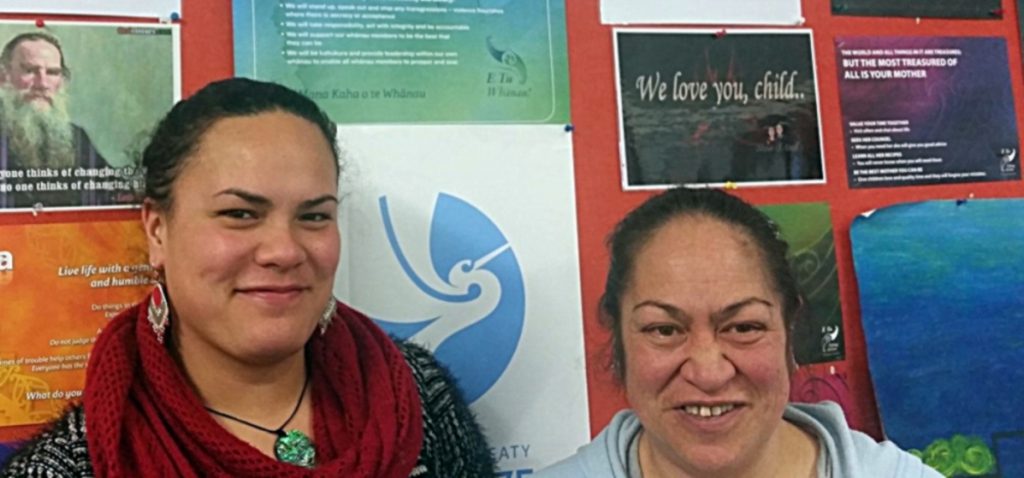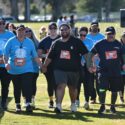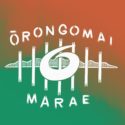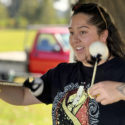Kylie says it was her children who gave her the courage to walk away from an abusive husband after 23 years of marriage and Ōrongomai Marae played a key role in keeping her on her chosen path.

Sam and Kylie (right) took their courage in their hands when they decided to speak publicly about the abusive relationships they were in
“I always thought it was my fault. I chose to have the kids and I was bought up with the view that children need both parents, so I hung in there. I felt isolated. I didn’t know how to approach someone who could help me.”
When the eldest of her seven children started at the Ōrongomai Marae Kōhanga Reo, Kylie finally found people with the aroha and skills to support her while she decided the direction she wanted her life to take.
She’s now a regular and welcome presence on the marae, helping at kohanga, in the kitchen or anywhere else she’s needed. She completed the marae’s adult literacy programme and spends time using the complex’s wifi to continue educating herself and follow her interests online (there are currently 35 people enrolled in the marae’s adult literacy programme).
Turning point
Samantha also had the marae’s full support when she stood up to her partner’s abuse. Unlike Kylie, the 28-year-old mother of four didn’t have to endure two decades of physical and mental abuse before doing something about it.
She said that the turning point came when her partner started hitting the kids.
“The worst incidence happened one night and we needed somewhere safe to go. I rang Linda (Ōrongomai Manager, Linda Paki) who was immediately ready to pick the kids and I up. Luckily I got hold of mum and dad but knowing she was ready to come and get me at midnight was a really good feeling.”
Living with Violence progamme
Samantha went on to receive counselling from Social Services team manager, James Kirk who referred her to Women Living with Violence programme run by Kōkiri Marae in Lower Hutt.
“It’s a really good programme and the facilitators were amazing, but it left me feeling very sad as well – listening to all those beautiful women and their experiences. But we drew energy from each other.”
Sam says ‘things are on and off’ with her partner.
“We’re always growing and I want us to grow together to be better parents and better partners but he’s got to keep up. If he falls back into old patterns, I’m quick to jump on it but I’m not going to be dragging a dead weight around.”
Locals flock to Ōrongomai
Sam says that people in flock to Ōrongomai and her family, like many others in the district, has a long association with the marae.
Kylie remembers looking after Sam when she was a kōhanga reo tamariki. Later, when her own children started at the kōhanga, Sam began working at the marae, first in administration then at the health clinic. She calls herself “the goffer girl”.
“It’s like I’ve grown up here. Working here, I’m always bumping into the whānau. Mum is on the marae committee and my sister practices rongoa here.”
Having the courage to speak out
For people like Kylie and Sam, the marae is a home away from home, a safe, supportive yet challenging place where they can grow and help others on their journey. Courageously, they both agreed that if talking about their experience of standing up to domestic violence can help others they’re happy to do it.
“When I went through my struggles with my partner Ōrongomai Marae was here to support me, as it is for so many people. If I can help others in any way, then I will.”



